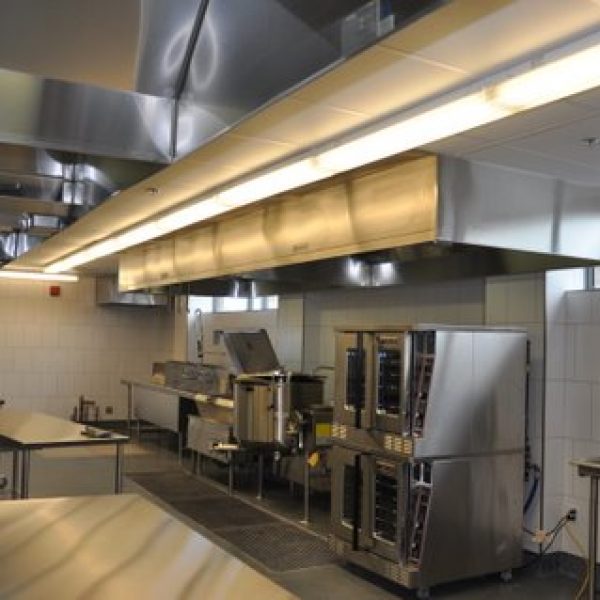
Stephen Coote, President Of Group 92 Featured In The National Post!
Stephen Coote has just completed his MBA through the Ivey School of Business at University of Western Ontario. He was featured in the National Post, check out the article!
NOT YOUR TYPICAL STUDENT
Mary Teresa Bitti, Financial Post · Tuesday, Oct. 26, 2010
Stephen Coote started his mechanical contracting company with $1,500 fresh out of college when he was 25 years old. Eighteen years later, he employs between 30 and 40 people and the St. Catharines, Ont.-based Group 92 Mechanical has institutional and commercial clients throughout southern Ontario. Much to the surprise of friends and peers, last year Mr. Coote embarked on an Executive MBA program at the Richard Ivey School of Business at the University of Western Ontario.
“The most frequent question I get is why, when you have already built and run a successful business, would you take an MBA?,” Mr. Coote says.
“There are a number of reasons, including my personal and educational growth. I believe education is life long. And being an entrepreneur, you get caught up in everyday business and you don’t pay enough attention to education.”
But there is another significant reason: “When you grow things entrepreneurially, that means get the sale, find the people and then complete the business,” Mr. Coote says.
“I entered the program to create a structure, establish strategy and goals and align the business. Even though I have systems in place I wanted more structure around operations.”
In hindsight, Mr. Coote says ideally he would have taken the MBA 12 years into his business, but he would not change having built up significant experience running a business before taking an MBA.
There are two schools of thought when it comes to entrepreneurship: learn by doing and arm yourself first before jumping in. The latter seems to be gaining momentum, as a growing number of MBA students go on to launch their own businesses. “There has been an awakening as to the role education can play in entrepreneurship,” says Dr. Hugh Munro, director of Wilfrid Laurier University’s MBA program.
“We have designed the MBA curriculum to provide foundational business acumen that will serve students no matter where they end up,” Dr. Munro says, “but we have also tailored the elective portion of the program into an entrepreneurship stream so they can take their idea, create a business plan and turn it into a viable business.”
Wilfrid Laurier is not alone in broadening its focus into the area of entrepreneurship. The fact is, business schools across North America are responding to specific drivers in today’s marketplace.
The days of cradle-to-grave employment with a large company are gone. In fact, large companies are taking a page from small companies, realizing that in the new economy they have to be flexible and more entrepreneurial, meaning they have to be innovative and quick to make a decision in order to meet ever changing customer needs and wants, says Dr. Bakr Ibrahim, professor of entrepreneurship at the John Molson School of Business at Concordia University.
“When we look back over the past 30 years, business schools were catering to only 3% of business — the large organizations. Meanwhile, small business makes up 97% of the market. They are behind the economic growth and welfare of any nation,” Dr. Ibrahim says.
“That has driven many young people going into MBAs to look at entrepreneurship as an exciting career. The feeling of insecurity that used to be associated with starting a business is no longer there. Now starting a business is viewed as being an innovative and challenging opportunity and advances in technology have made it that much easier to go down this road. It’s not surprising, then, that we have seen a growth in the number of MBA students from liberal arts and science backgrounds taking courses in entrepreneurship to enhance their innovative and management skills.”
In recognition of this, the DeGroote School of Business at McMaster University offers a graduate course in entrepreneurship open to any graduate student from all disciplines at the university.
“Science, health, business and communications students, for example, get together and form teams and guess what, those are exactly the type of entrepreneurial teams in you need in the real world,” says Dr. Benson Honig, Teresa Cascioli Chair in Entrepreneurial
1 of 2 10/26/2010 2:48 PMNot your typical student http://www.nationalpost.com/todays-paper/your+typical+student/3726563…
Leadership at DeGroote.
“I am a strong advocate of interdisciplinary courses. I think management itself has to get out of business schools and business schools have to get out and get into other faculties in order to enhance innovation and creativity.”
As he approaches the finish line to his MBA this January, Mr. Coote says the program has affirmed much of what he has been doing but it has also showed him areas for improvement. “I realized to take the business forward I needed to expand my capabilities. For entrepreneurs there is a lot of trial and error but mistakes get a lot more expensive as the company grows. If I can alleviate that through a better understanding of strategy or finance, then that’s a good thing.”
Get the National Post newspaper delivered to your home
© 2010 National Post Inc. All rights reserved. Unauthorized distribution, transmission or republication strictly prohibited.



